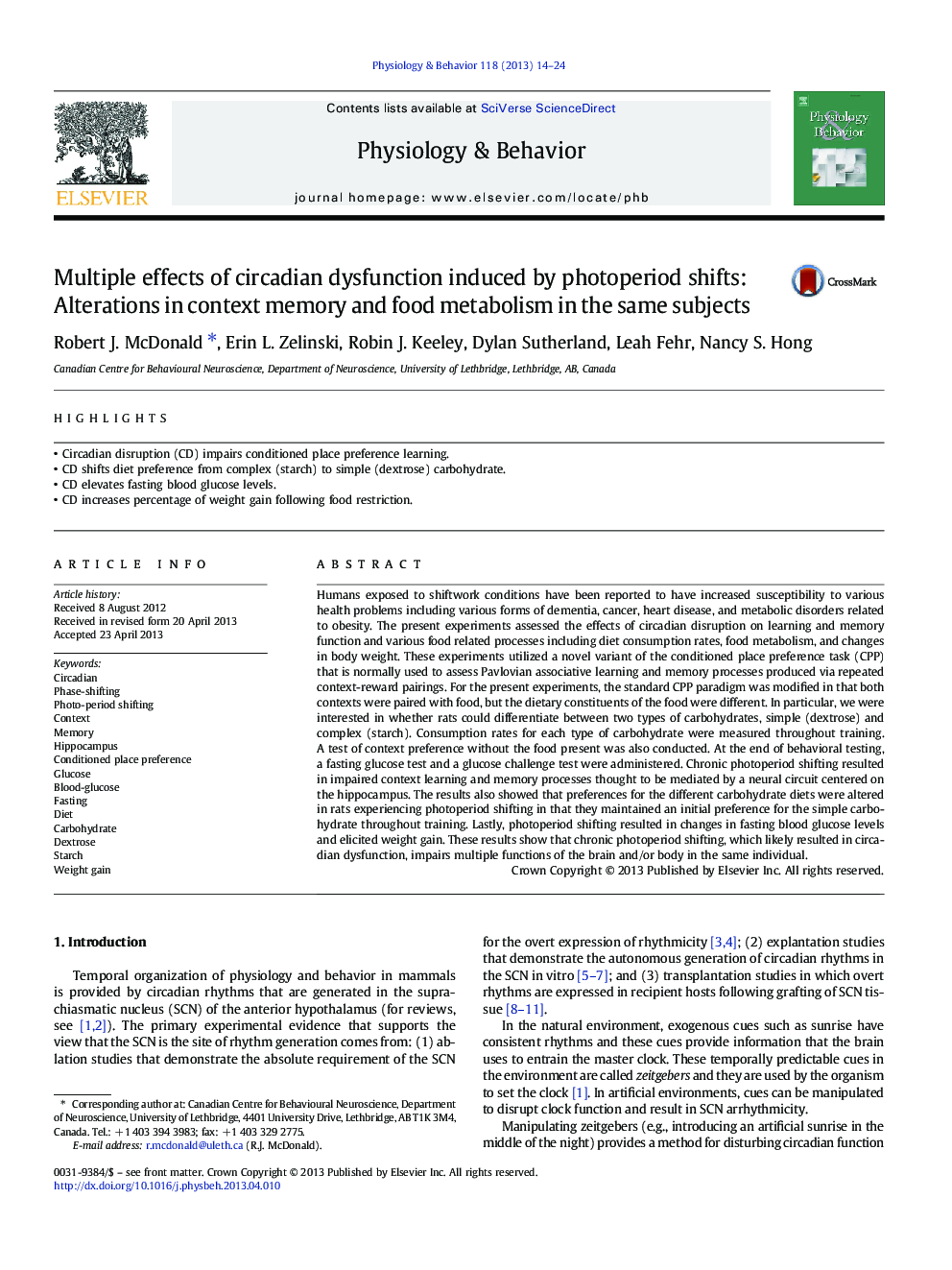| Article ID | Journal | Published Year | Pages | File Type |
|---|---|---|---|---|
| 5924684 | Physiology & Behavior | 2013 | 11 Pages |
Abstract
Humans exposed to shiftwork conditions have been reported to have increased susceptibility to various health problems including various forms of dementia, cancer, heart disease, and metabolic disorders related to obesity. The present experiments assessed the effects of circadian disruption on learning and memory function and various food related processes including diet consumption rates, food metabolism, and changes in body weight. These experiments utilized a novel variant of the conditioned place preference task (CPP) that is normally used to assess Pavlovian associative learning and memory processes produced via repeated context-reward pairings. For the present experiments, the standard CPP paradigm was modified in that both contexts were paired with food, but the dietary constituents of the food were different. In particular, we were interested in whether rats could differentiate between two types of carbohydrates, simple (dextrose) and complex (starch). Consumption rates for each type of carbohydrate were measured throughout training. A test of context preference without the food present was also conducted. At the end of behavioral testing, a fasting glucose test and a glucose challenge test were administered. Chronic photoperiod shifting resulted in impaired context learning and memory processes thought to be mediated by a neural circuit centered on the hippocampus. The results also showed that preferences for the different carbohydrate diets were altered in rats experiencing photoperiod shifting in that they maintained an initial preference for the simple carbohydrate throughout training. Lastly, photoperiod shifting resulted in changes in fasting blood glucose levels and elicited weight gain. These results show that chronic photoperiod shifting, which likely resulted in circadian dysfunction, impairs multiple functions of the brain and/or body in the same individual.
Keywords
Related Topics
Life Sciences
Biochemistry, Genetics and Molecular Biology
Physiology
Authors
Robert J. McDonald, Erin L. Zelinski, Robin J. Keeley, Dylan Sutherland, Leah Fehr, Nancy S. Hong,
